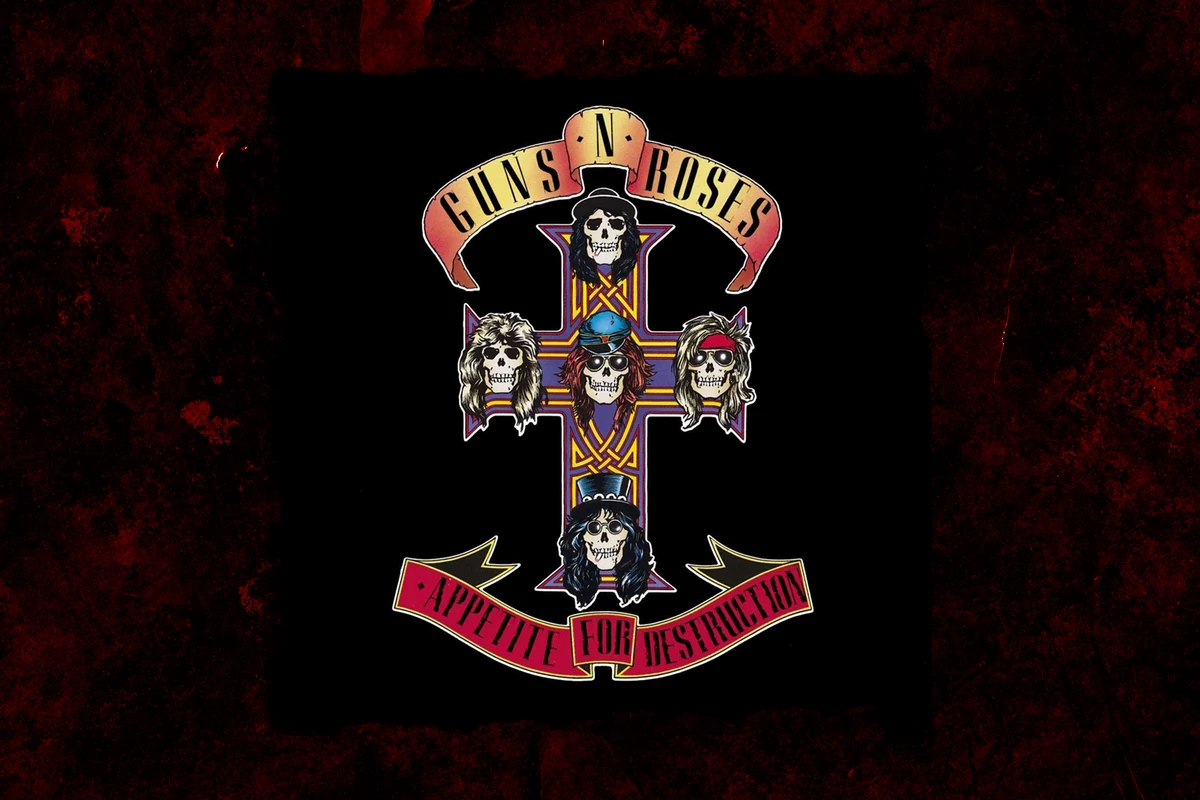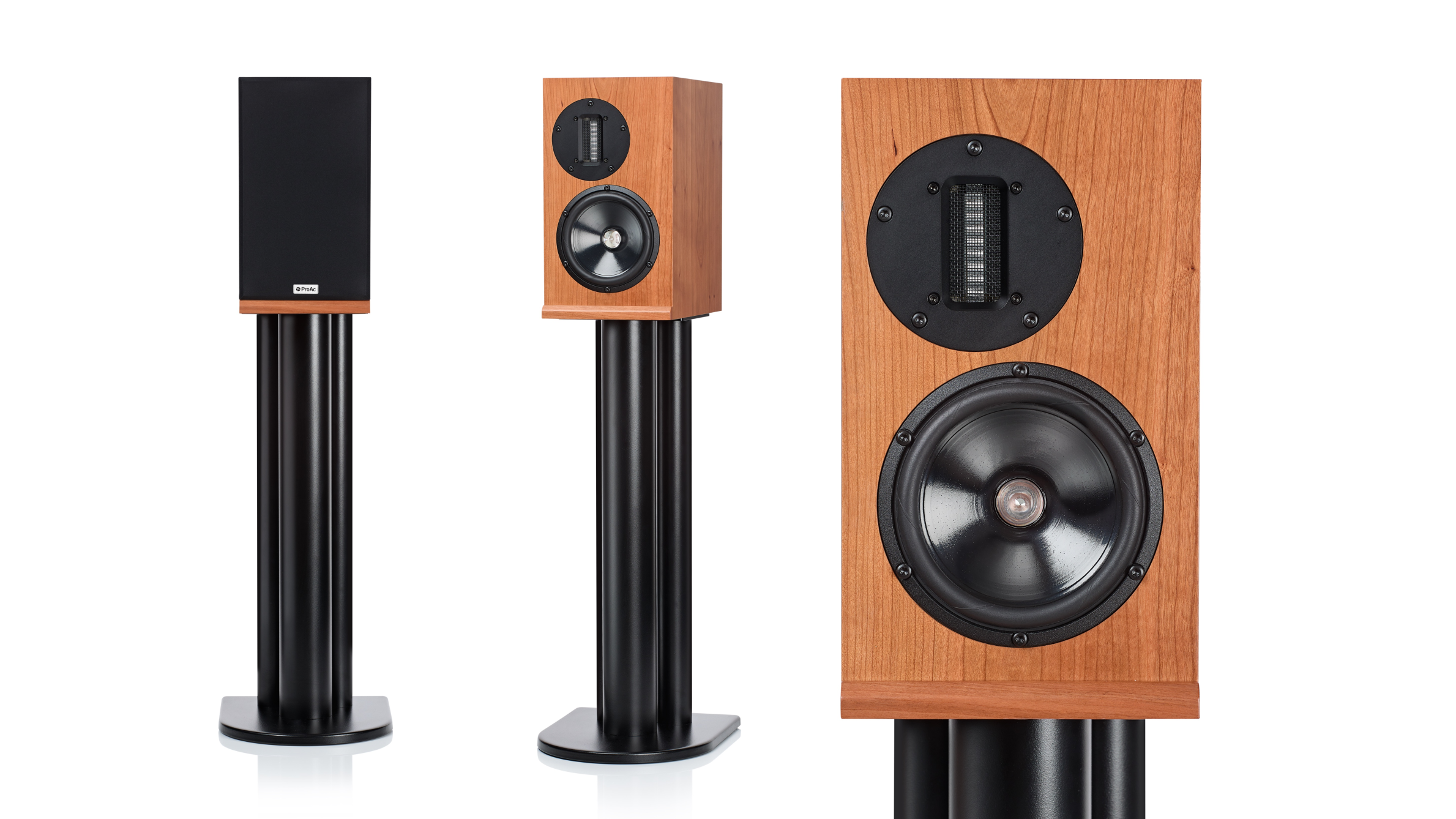14 of the best album openers to test-drive your headphones or hi-fi system
First impressions are everything and these track-one gems are up there with the very best

The latest hi-fi, home cinema and tech news, reviews, buying advice and deals, direct to your inbox.
You are now subscribed
Your newsletter sign-up was successful
There are loads of great songs that happen to be the first track on an album – Rock N Roll Star by Oasis, Taxman on Revolver, Turn the Page by The Streets – but there’s more to being a great opener than just being a great song.
The best opening tracks are also statements of intent. Songs that stop you in your tracks, grab you by the ears, and force you to pay attention. Sometimes that’s through sheer musical power, but it can also be because of what that song represents for an artist or genre. However, they will only do so if your system or headphones can do them justice.
This list was painstakingly whittled down from an original shortlist of nearly 50 songs, so if your favourite isn’t on there, it was probably culled reluctantly, but do make sure to sound off in the comments anyway.
Radiohead – Everything In Its Right Place (Kid A, 2000)
It’s difficult to think of a contemporary band that’s as good at album openers as Radiohead. Planet Telex, Airbag and 15 Step all introduce their respective records brilliantly, but the first track on Kid A still towers above them.
Freaked out by the massive success of OK Computer, exhausted from touring in support of it, and bored by the sound of guitars, frontman Thom Yorke had moved to a house in Cornwall with only a grand piano to play.
Everything In Its Right Place was the first song he wrote for the band’s keenly awaited follow-up album, but it wasn’t until he got into the studio and transferred the melody to a synthesiser that the song really took shape.
Inspired by his love for electronic artists such as Aphex Twin and Autechre, its glitchy, chopped-up backing vocals and hypnotic melody were a big shock to fans anticipating OK Computer II, but it allowed Yorke to fall in love with making music again.
The latest hi-fi, home cinema and tech news, reviews, buying advice and deals, direct to your inbox.
Everything In Its Right Place didn’t just begin their most highly anticipated record; it marked the start of an entirely new era for the band.
The Who – Baba O’Riley (Who's Next, 1971)
The Who might have emerged from the Mod movement of the mid-sixties, but by the time they came to release Who’s Next in 1971 the band had already made two concept albums and left many of their contemporaries behind. Baba O’Riley took things to the next level.
Originally conceived for a sci-fi rock opera project called Lifehouse, the five-minute track is built around an organ pattern that Pete Townshed wanted to sound like “the electronic music of the future” – and it still sounds ahead of many songs written today.
Often mistakenly known as ‘Teenage Wasteland’ due to the phrase’s repeated use within the lyrics, the song is actually named after two people: an Indian spiritual master called Meher Baba, who took a vow of silence and didn’t speak for 44 years, and American minimalist composer Terry Riley.
Nirvana – Smells Like Teen Spirit (Nevermind, 1991)
It shows just how many great songs there are on Nevermind that Nirvana were able to put Smells Like Teen Spirit first and not worry that the rest of the album would feel like a letdown.
The band had emerged from the alternative-rock scene in the Pacific Northwest, and while their 1989 debut Bleach had received moderate critical acclaim, its sludgey, abrasive sound and unremarkable initial sales didn’t suggest Cobain and co were on the verge of creating a worldwide sensation.
By the time they came to record Nevermind with producer Butch Vig in 1991, Kurt was on a mission to write “the ultimate pop song”. He took inspiration from the quiet/loud dynamics of bands such as the Pixies, and came up with a riff that bears some similarity to Boston’s More Than a Feeling, while Dave Grohl borrowed the opening drum beat from The Gap Band’s Burn Rubber On Me.
The result is probably the most recognisable rock song of all time and one that made grunge a household name.
Bob Dylan – Like a Rolling Stone (Highway 61 Revisited, 1965)
It’s difficult to understand the impact Like a Rolling Stone had if you weren’t there when it was released in 1965, so let’s consult some people who were, shall we?
Paul McCartney, Bruce Springsteen, Elvis Costello and Frank Zappa have all spoken about the song’s impact on themselves and the wider music world, explaining how it upped the ante to the point that it made the latter want to quit making music completely.
Earlier that year, Dylan had already alienated a large portion of his fanbase by incorporating more electronic sounds on Bringing It All Back Home, but from the moment that drumstick hit the snare on Like a Rolling Stone it was clear there was no going back.
Taken at face value, it tells the story of a socialite identified only as Miss Lonely who falls on hard times, but like many of Dylan’s best songs it is open to interpretation.
Regardless of how you choose to read it, the real power of the song comes from its take-no-prisoners attitude, which you should be able to feel on a decent system.
Buy Highway 61 Revisited on Amazon
Guns N’ Roses – Welcome to the Jungle (Appetite for Destruction, 1987)
To write an all-time great opener for an album is one thing, but to do it on your debut is quite another.
A love letter (or sorts) to the band’s hometown of Los Angeles, according to Axl Rose the song’s title was actually inspired by an encounter he had with a homeless man in New York, but it’s fitting for a song that introduces a band known for their hell-raising antics almost as much as their music.
Based around a riff written by lead guitarist (and full-time hat enthusiast) Slash, Welcome to the Jungle is Guns N’ Roses distilled into four-and-a-half minutes of arena-filling rock: wailing guitar solos, thunderous drums, and one of the great Axl Rose vocal performances, including that legendary breakdown. “You know where you are? You’re in the jungle, baby! You’re gonna die!”.
Guns N’ Roses might be more famous for Sweet Child O’ Mine, but Appetite for Destruction wouldn’t have been the same without its opener.
Buy Appetite for Destruction on Amazon
Marvin Gaye – What’s Going On (What's Going On, 1971)
Released at the beginning of 1971, What’s Going On was the result of a collaboration of sorts between Ronaldo "Obie" Benson from the Four Tops, Motown songwriter Al Cleveland, and Marvin Gaye himself.
Inspired by anti-war protests, police brutality, and the civil rights movement, What’s Going On doesn’t have the angry feel of your standard protest song – the background chatter makes it sound more like a party tune – but listen to the lyrics and the song’s message is clear, particularly when compared to the love songs that were popular at the time.
Produced by Gaye himself, there’s a lot going on here, including a saxophone intro that wasn’t originally intended to be part of the recording, plus strings, horns, bongos, and those soaring multi-layered vocals, which deliver a message that’s as relevant today as it’s ever been.
The Flaming Lips – Race for the Prize (The Soft Bulletin, 1999)
If you don’t appreciate the brilliance of Race for the Prize on record, imagine you’ve just witnessed singer Wayne Coyne in an inflatable ball scrambling over the top of the crowd at one of the band’s gigs, a bit like a giant bearded hamster, before launching into this euphoric opener to The Soft Bulletin.
With its soaring synth line, bombastic drums, and life-affirming lyrics about a pair of scientists searching for the cure for an unnamed disease, Race for the Prize also marked the start of a new period in the band’s career.
Until its release in 1999, they had seen limited success with albums such as Transmissions from the Satellite Heart and Clouds Taste Metallic.
But The Soft Bulletin, and Race for the Prize in particular, set the band on a course for more widespread mainstream success, which saw them bring their unique and joyful music to a much bigger audience. Perfect for those hamster impressions.
Buy The Soft Bulletin on Amazon
Wu-Tang Clan – Bring Da Ruckus (Enter the Wu-Tang (36 Chambers), 1993)

In an era when hip-hop – or a diluted version of it – had started to infiltrate the charts, the arrival of the Wu-Tang Clan was a breath of fresh air to anybody who thought Will Smith should’ve stuck to acting.
Released on the same day as A Tribe Called Quest’s brilliant Midnight Marauders, the raw, stripped-back sound of Enter the Wu-Tang (36 Chambers) was at odds with much of the more jazz- and funk-influenced rappers that were big at the time – and Bring Da Ruckus is probably the best example of that.
Over little more than a head-nodding drum beat and ominous piano notes (plus a dialogue sample from an old kung-fu movie that would become their calling card), Bring Da Ruckus introduces five members of the Clan to the world: RZA, GZA, Raekwon, Ghostface Killah and Inspectah Deck. The rest is history.
36 Chambers paved the way for Nas, Biggie and Jay-Z, but none of them ever sounded as gritty as Bring Da Ruckus.
Buy Enter the Wu-Tang (36 Chambers) on Amazon
Nick Cave & The Bad Seeds – Into My Arms (The Boatman's Call, 1997)
The opener from what is often considered to be Nick Cave’s finest album – a hotly contested title if ever there was one – Into My Arms is one of those stop-you-in-your-tracks songs that is greater than the sum of its parts, but also works only due to its simplicity.
Just Cave and his piano, backed by Martyn Casey on bass, the song was something of a departure for the former member of The Birthday Party. More sombre and stripped-back than the raucous post-punk or character-driven gothic-rock that he was famous for, there’s a different kind of intensity to the songs on The Boatman’s Call.
Written while in rehab for heroin addiction, and thought to be inspired by the breakdown of two relationships, Into My Arms is a powerfully disarming song about love and loss that will test just how good your system is at conveying emotion, and ensure Cave is remembered as one of the greatest songwriters to ever live.
Buy The Boatman's Call on Amazon
Black Sabbath – Black Sabbath (Black Sabbath, 1970)
There’s an argument to be made that Black Sabbath isn’t just the first track on Ozzy and co’s self-titled debut, but something much more influential than that.
It might not sound particularly heavy now, but in 1970 nobody had heard anything quite as foreboding – and every metal song recorded since can be traced back to it.
Supposedly inspired by a visit from a tall, shadowy figure that bassist Geezer Butler had after placing an occult book by his bed one night, the song begins with the sound of a church bell tolling during a thunderstorm (so far, so metal).
But the real star of the show is Tony Iommi’s sinister riff. According to people who know more about musical theory than most, it’s called a tritone, and this particular one is also known rather fittingly as the diabolus in musica.
Add in Ozzy’s tortured howls, and you’ve got the recipe for not just a classic album opener but an entire genre.
Fugazi – Waiting Room (13 Songs, 1989)
Formed from the ashes of legendary DC punk bands Minor Threat and Rites of Spring (plus bassist Joe Lally), Fugazi can be credited with pushing the genre well beyond its previously established boundaries.
Waiting Room was the first song on the band’s first EP, released in 1988 but then re-released as part of a compilation in 1989, and it remains their most popular track.
Opening with one of the great bass intros, and with a sudden pause after 21 seconds that should give the dynamics of your system something to think about, the texture of Ian Mackaye’s guitar loads Waiting Room with taut energy that’s unleashed with each chorus.
Wilco – I Am Trying to Break Your Heart (Yankee Hotel Foxtrot, 2001)
There is a long and complicated story behind the creation of Wilco’s Yankee Hotel Foxtrot, including the band’s record label rejecting the album outright, that is hard to fathom, knowing that it went on to become one of the most critically acclaimed albums of the noughties.
More sonically adventurous than the alt-country that had put Wilco on the musical map, it takes the same raw materials and wraps them in layers so that the melodies gradually reveal themselves the more you listen.
Combining lyrics that are both obtuse (“I am an American aquarium drinker, I assassin down the avenue”) and poignant (“I'd always thought that if I held you tightly, you'd always love me like you did back then”), I Am Trying to Break Your Heart epitomises the album’s approach.
Augmenting their usual instruments with gentle synth drones, bursts of percussion, and burbling static, it’s the perfect start to an almost perfect album.
Buy Yankee Hotel Foxtrot on Amazon
My Bloody Valentine – Only Shallow (Loveless, 1991)
Released in the same year as Slowdive’s Just for a Day, and a year after Ride’s Nowhere, My Bloody Valentine’s Loveless is both the high watermark of shoegaze and also the album that made all the other bands in the genre sound hopelessly out of their depth.
Famed for its difficult and drawn-out genesis – it’s said some studio engineers still have nightmares about working with Kevin Shields – the guitars on the album often sound more like the noise that a star might make if you were able to feed it through a complex setup of mics and pedals.
Many of those unique sounds are the result of Shields’ ‘glide guitar’ technique, which was achieved by using the whammy bar on his Fender Jazzmaster while he strummed.
That and lots and lots of volume, so you’ll need to hope your system can cope if you want to replicate an MBV live show, which is a bit like standing in the wake of a jet engine.
Mastodon – Blood and Thunder (Leviathan, 2004)
Blood and Thunder isn’t just a great album opener; it also features one of heavy metal’s greatest intro riffs, and an absolutely killer opening line.
Taken from Mastodon’s Leviathan, a concept album based on Herman Melville’s classic novel Moby Dick, singer Troy Sanders adopts the persona of Captain Ahab and cries, “I think that someone is trying to kill me!” over a riff so big that it could almost sink the Pequod.
Backed by Brann Dailor’s intricate and intense drumming, Blood and Thunder is a furious anti-whale manifesto, with guest vocalist Neil Fallon from Clutch instructing the ship’s crew to “aim directly for his crooked brow, and look him straight in the eye” at the end of the song’s punishing bridge.
It’s the perfect opener to an album that’s both musically sophisticated and absolutely packed to bursting with songs sent from mosh pit heaven.
MORE:
Best music streaming services 2025: free streams to hi-res audio
7 tracks we've been enjoying in our test rooms over the past month
Tom Wiggins is a freelance writer and editor. A lifelong fan of Brighton & Hove Albion F.C., his words have graced a variety of respected sporting outlets including FourFourTwo, Inside Sport, Yahoo Sport UK and In Bed With Maradona. He also specialises in the latest technology and has contributed articles to the likes of TechRadar, TrustedReviews, ShortList, Wareable, Stuff, Metro, and The Ambient.
You must confirm your public display name before commenting
Please logout and then login again, you will then be prompted to enter your display name.






![The Flaming Lips - Race For The Prize [Official Music Video] - YouTube](https://img.youtube.com/vi/bs56ygZplQA/maxresdefault.jpg)





